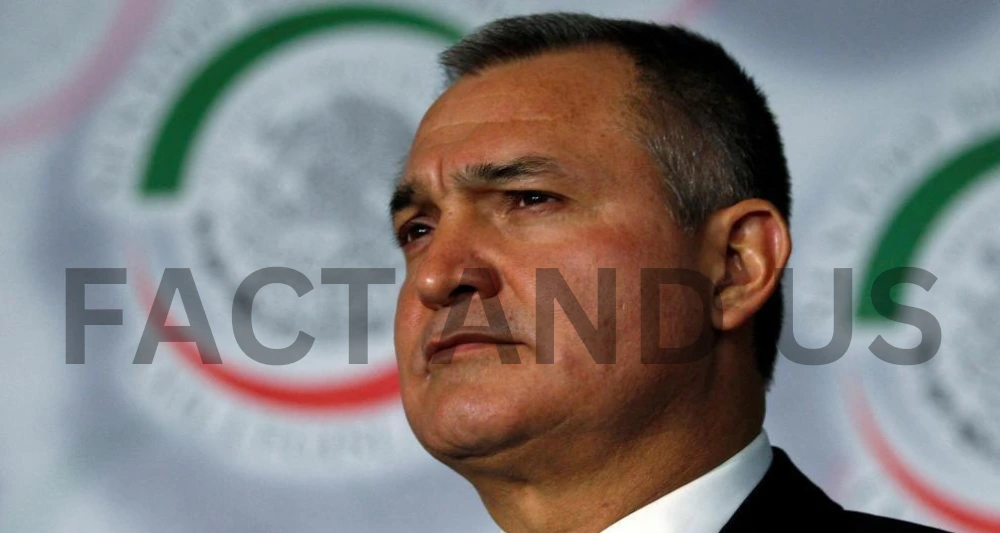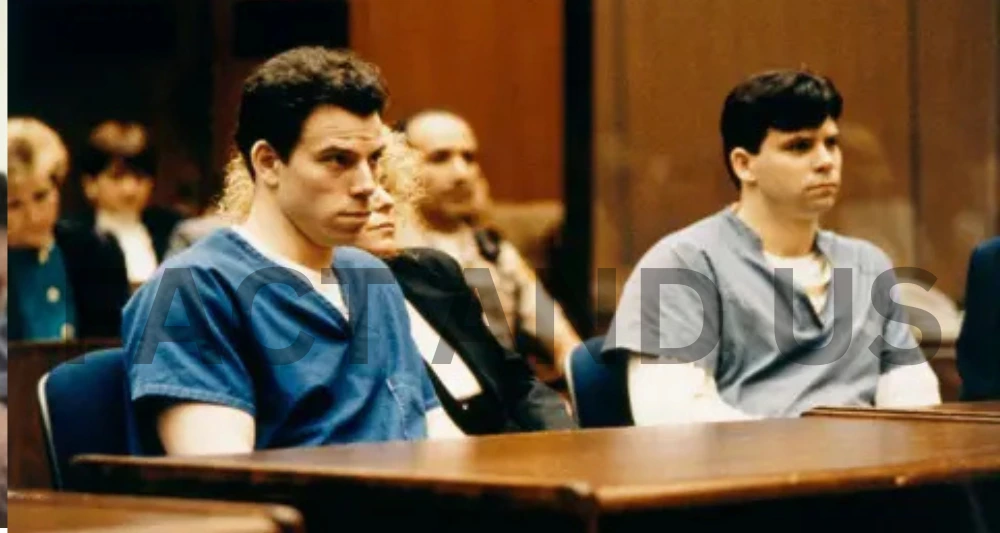Appearing in a crisp suit and dark tie, Genaro García Luna – the highest-ranking Mexican official ever to be convicted in the United States – remained impassive as his sentence was handed down in a New York courtroom.
He was sentenced to more than 38 years in prison, as well as a $2m (£1.5m) fine. It was not the life sentence he could have received, but a jail term that the judge, Brian Cogan, felt reflected the severity of his crimes.
Mexico’s Drug Tsar’s Spectacular Fall

A small group of demonstrators outside court on Wednesday greeted the news with jubilation. It marks the final chapter in the story of the most spectacular fall from grace in modern Mexico. If anyone was Mexico’s drug war tsar – the chief architect and public face of the government’s security strategy under then-President Felipe Calderón – it was García Luna.
The sentence will also increase the pressure on Mr Calderón, too, who has always claimed he knew nothing of his security chief’s illegal activities. García Luna has maintained his innocence. But to see him sentenced to almost four decades behind bars for drug-related crimes is more than even his fiercest critics dared to imagine while he was in office.
“His role in ramping up the war on drugs in Mexico from 2006 to a whole new level can’t be overstated”, says Falko Ernst, an independent drug war and security expert in Mexico. “He championed a force-based solution against organised crime in Mexico like never before and revamped the state apparatus accordingly.”
To find that during his outwardly “proactive” stance on drug crime, he was in fact in bed with one of the region’s most violent and feared cartels, is emblematic of the kind of corruption and duplicity that makes Mexicans so sceptical of their politicians.


For Mr Ernst, the García Luna case also reveals a fundamental contradiction at the heart of the so-called “war on drugs”. “It shows how this recipe of a supposedly ‘good’ state acting against the bad guys and wiping them off the map doesn’t square with the realities on the ground in Mexico,” he argues.
His trial in New York has gripped international audiences, as details emerge of how someone entrusted with leading Mexico’s war on drugs allegedly became an ally of one of its most powerful criminal organizations. Testimonies from former cartel members and government insiders have painted a picture of deep corruption at the highest levels of Mexico’s security forces during García Luna’s tenure.
García Luna has pleaded not guilty to the charges, maintaining that he dedicated his career to fighting crime and that the accusations are part of a smear campaign orchestrated by his enemies. His defense team has sought to discredit witnesses, many of whom are former cartel members cooperating with U.S. authorities in exchange for reduced sentences.

For many Mexicans, García Luna’s case represents the dark underside of their country’s years-long battle with drug cartels, exposing how deeply organized crime has infiltrated key institutions. Once praised for his role in modernizing Mexico’s police forces and coordinating large-scale operations against drug traffickers, García Luna’s arrest and trial have shattered that image, revealing a complex web of corruption that allegedly reached the top levels of government.
During the height of his career, García Luna was a close ally of then-President Felipe Calderón, who launched Mexico’s aggressive crackdown on drug cartels in 2006. Calderón has distanced himself from his former security chief in recent years, though his presidency has come under scrutiny for the extensive human rights abuses and soaring violence that accompanied the drug war.

In the courtroom, U.S. prosecutors have laid out a damning case, showing evidence of money laundering, hidden bank accounts, and lavish lifestyles that they claim were financed by drug money. One witness testified that García Luna had personally received briefcases stuffed with cash from cartel leaders. The testimony has shocked many who once viewed him as a symbol of Mexico’s fight for law and order.
The trial has also sparked broader conversations about the difficulties of combating cartel violence in Mexico, where the line between law enforcement and organized crime is often blurred. While García Luna’s fate will be decided in a U.S. court, the repercussions of his downfall continue to reverberate across Mexico, raising questions about who can truly be trusted in the country’s fight against drug cartels.
For many, García Luna’s fall from grace is not just a personal scandal but a symbol of the broader challenges Mexico faces in breaking the power of drug cartels that have infiltrated every corner of society. The outcome of the trial will be closely watched, as it may offer new insights into the extent of corruption that has long plagued Mexico’s war on drugs.
stay connected with fact and us for more such news.
